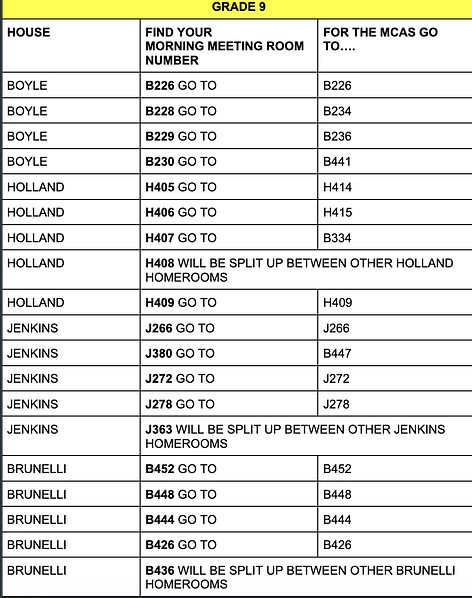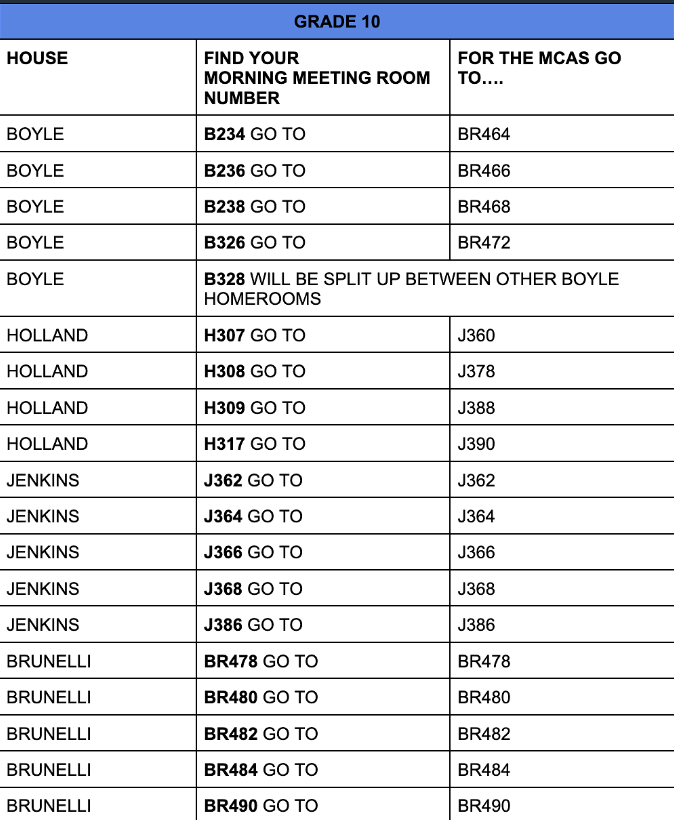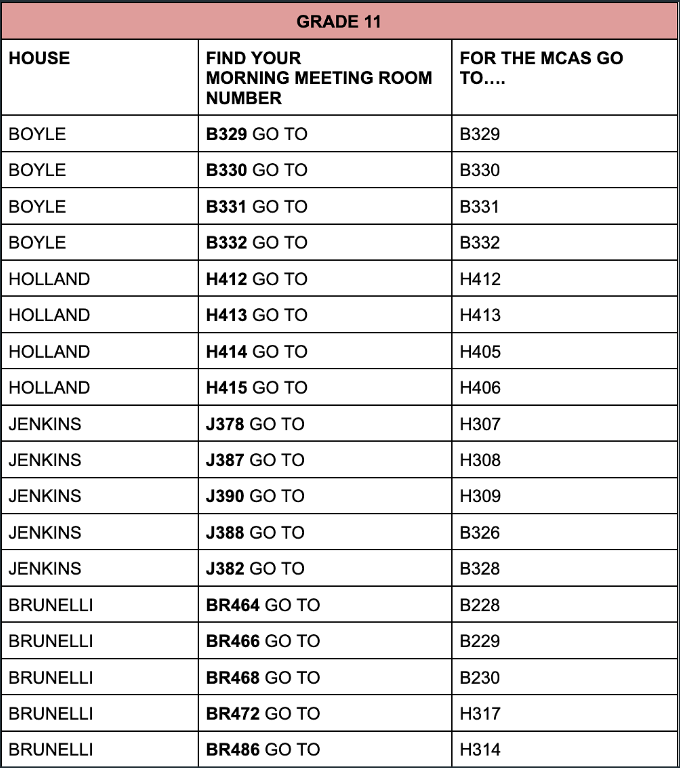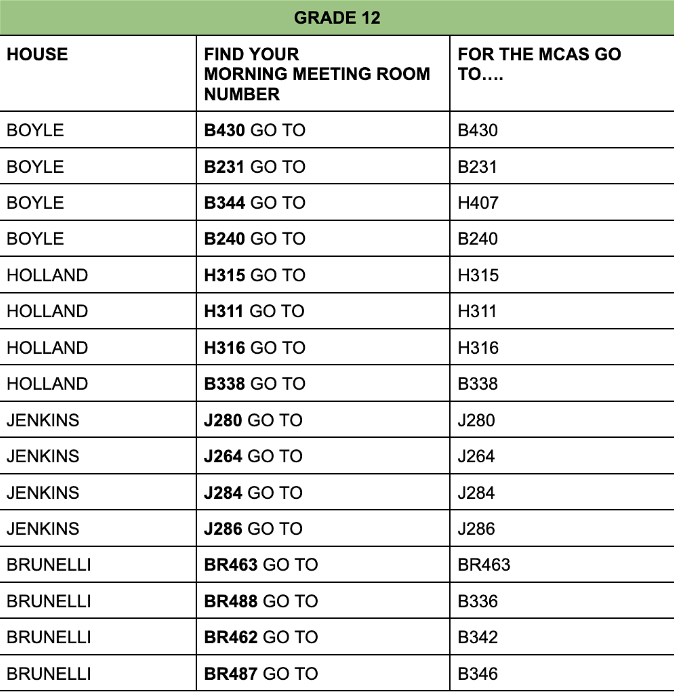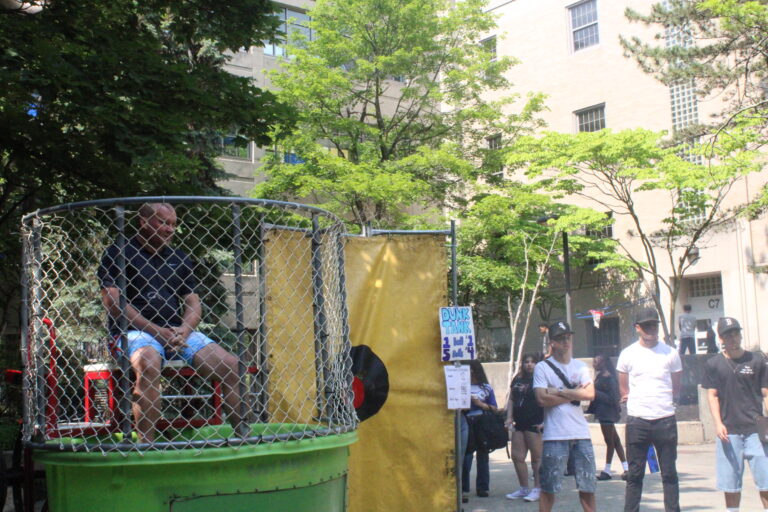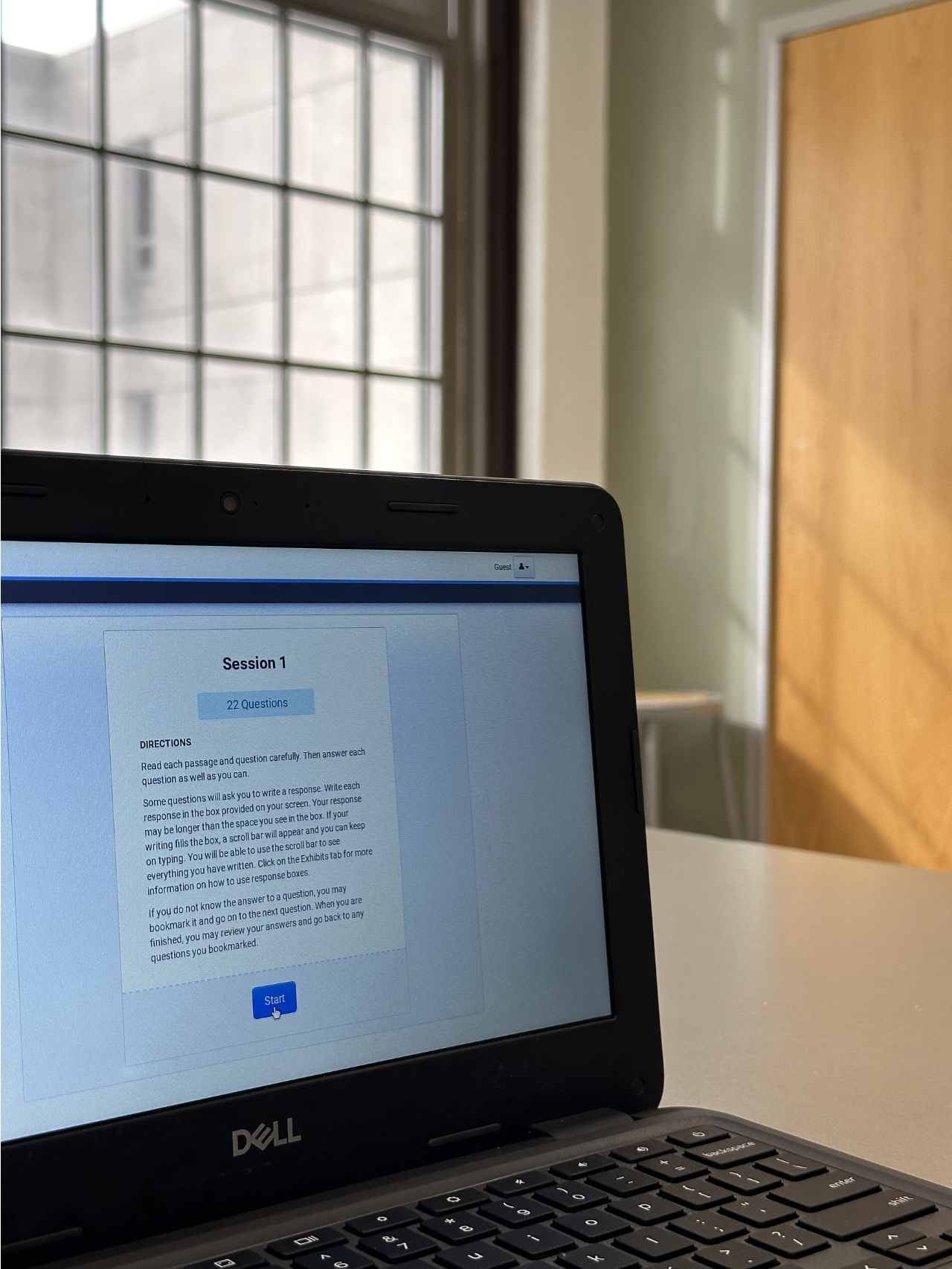
Victoria Domiciano also contributed to this article.
The Massachusetts Comprehensive Assessment System (MCAS) is an evaluation that’s safe to say no student looks forward to. Known for its oddly worded questions, long test hours, and months of preparation, it can be the most stressful time of year for many students. Created and implemented in 1993 by the Massachusetts Department of Education, the test’s purpose is for students and teachers to see where students excel and where they need guidance.
The schedule for taking the ELA MCAS has changed throughout the years. Originally, only sophomores would be allowed entry into the building to take the test distraction-free. As of this year, Superintendent Dr Noriega Murphy has made a change in which all students must be inside the building, even while testing is taking place. Many freshmen, juniors, and seniors are noticeably unhappy with the change.
“It used to be that the students entered the building at 10:30 because we needed the least amount of students and we needed the most amount of staff. But there was a shift about three years ago,” Mr. Mastrangelo explained.
This year, the ninth, eleventh, and twelfth graders have a specific schedule in which on the MCAS days they must go to a designated homeroom until 10:45 on the 26th, and 10:00 on the 27th.
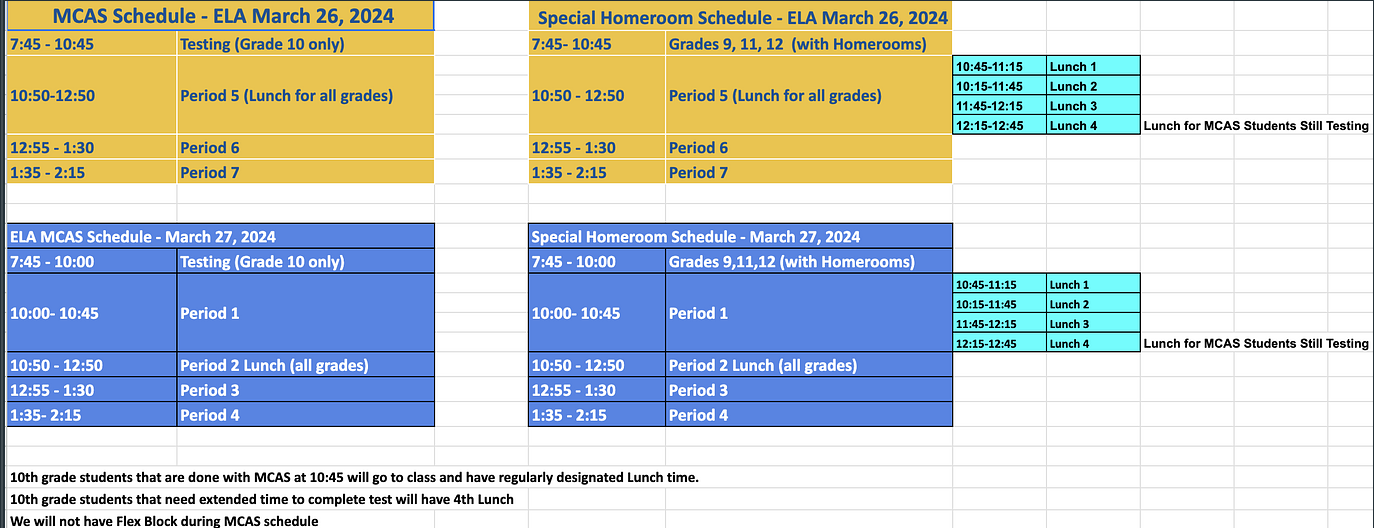
The schedule sent by Christopher Mastrangelo via Gmail.
“Making the schedule for the students also came with factoring in what is the best use of time, like for instance, the ninth graders are running a rotation of all of their core academic subjects, the eleventh graders are meeting with college and career advisors, and the twelfth graders are participating in end of the year information sessions. We are trying to do things that are very specific to the age in which the students are productive during both testing days,” said Mastrangelo.
When creating the school schedule for the day, the admin team comes together along with the house principals, and Mr. Mastrangelo. The schedule gets released to the faculty first, and the faculty returns with suggestions, leaving room for improvements that they believe are best for students.
Sophomores were separated into Brunelli and third-floor Jenkins rooms to take the test, and the rest of the students in the building were kept from roaming those hallways. Students were to rotate between homerooms; on the first day of MCAS rotating rooms once and on the second day rotating twice. Many students didn’t understand the change and were confused with the purpose of this.
“I think that students would perform better if they allowed students to not have to come in until class starts because then students won’t be tired. Also, students were wandering the halls when they’re in their homeroom because the students had nothing to do,” expressed Junior Ella Yu. “Students would just spend time on their phone, making going to classes after difficult.”
Many students didn’t appreciate the amount of time that they had to stay in homeroom, but others were happy about having a time when they could relax and avoid classes.
“I enjoyed the extra time in homeroom because I got to play games with my friends and just in general get to know them better,” freshman Emily Duong said. “It didn’t really bother me because I had friends who I could hang out with. I was happy that the classes were shortened because it felt like I could leave school early,” she continued.
As for the sophomores who had to take the test, some students had neutral feelings about the test while others had very strong feelings about the assessment.
“I think MCAS is a great way to strengthen your skills and knowledge, but it’s a pretty stressful environment if you’re someone who really focuses on their academic learning. I think my thoughts would have affected how I performed on the test because I would have this lingering feeling that if I got most questions wrong I won’t do well in the career I want,” shared Sophomore Sheyla Bonilla Arevalo. Her English teacher gave her “countless of practice tests” to prepare her, but she was unsure of whether or not they’ll help her.
“My teacher gave us multiple stories that relate to the MCAS to prepare us. She taught us ways to make the understanding of the story an easier process and smoother for us. She also assigned us some IXLs,” said sophomore Shahd Abdulghani. Her feelings about the test were very neutral, claiming to have little difficulty with it yet still dreading the experience.
“Students are ready for this, they are prepared, they’ve worked hard. The teachers have worked hard. So for what’s in front of them, they’re totally ready,” Masterangelo said.
The ELA MCAS is a chance for sophomores to show what they’ve learned and for schools to see how well they’re doing. So, while it might be a bit stressful, it’s a chance for students to put their all into what they’ve been working on throughout the year.
“I am definitely not ready for the math or biology MCAS. I do understand the materials of both subjects but I need to study more to make sure I get a good grade on both tests,” continued Abdulghani.
Overall, it’s safe to say that no student looks forward to this test. However, it’s important to still prepare for it and to understand the importance of this test, not only how it appears on your transcript, but also how it determines your test-taking ability.

